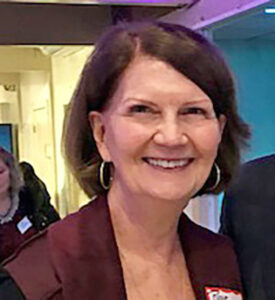
She copy-edits much of the six-day Caledonian-Record in St. Johnsbury, Vermont. She writes and produces two or three full education pages each week including Kid Scoop every Tuesday. She referees high school varsity basketball, boys and girls, and regularly skies Burke Mountain where Rosie Smith and her husband, Mark Smith, have a vacation home.
The Smith family has owned this storied newspaper, established in 1837 since Mark’s grandfather bought it in 1919. The pair have even delivered the paper themselves when drivers quit unexpectedly.
But Rosie Smith’s heart is with education and supporting local schools in the paper’s 12,000 combined print and digital circulation in the “Northeast Kingdom”—three counties in the very north of Vermont plus two counties in northwestern New Hampshire.
Three prominent local businesses support Kid Scoop on the education pages: an automobile dealership, a local bank, and an insurance company for the newspaper’s health plan. “We’ve been friends with all these people for years, and they love the relationship they have with the children and teachers,” Rosie explained. “They’ve been supporters since day one. They enjoy getting thank-you notes from teachers and children.”
During the recent Covid years, Rosie said Kid Scoop became more important. “Parents were using Kid Scoop at home, especially when the schools were doing remote learning.” One student wrote a class assignment about a moose. “It was so good I actually published it on our education pages,” Rosie said. School news comes in regularly which Rosie features on her designated education pages.
Kid Scoop is designed to engage the children in civics education through reading and discussing news about area leaders and local improvement projects.
Activities on the Kid Scoop page are created to teach reading, writing, and math skills, as well as content for geography, history, science, and literature lessons.
“I’ve loved Kid Scoop since I first saw it back in 1998. I want to keep it in our paper, always,” Rosie said.


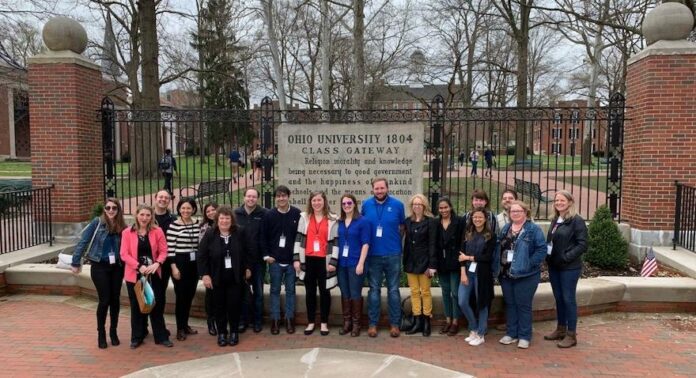
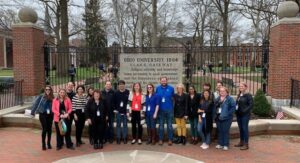
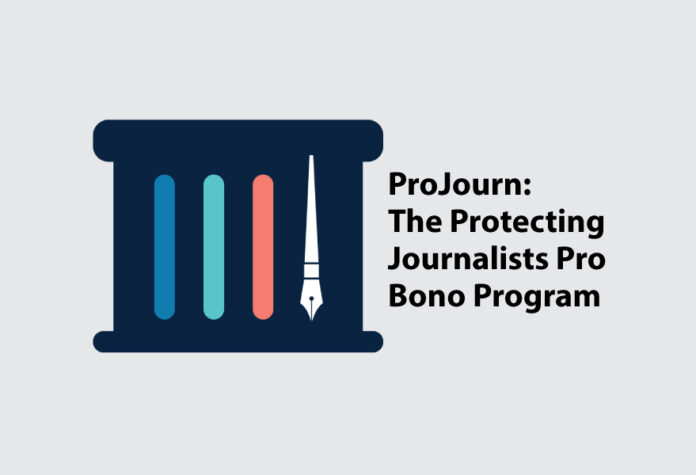
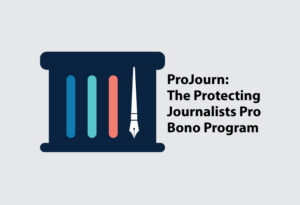 Together, the Reporters Committee for Freedom of the Press, Microsoft Corp., the John S. and James L. Knight Foundation and Davis Wright Tremaine — four leaders in their respective fields — are teaming up to expand the Protecting Journalists Pro Bono Program (
Together, the Reporters Committee for Freedom of the Press, Microsoft Corp., the John S. and James L. Knight Foundation and Davis Wright Tremaine — four leaders in their respective fields — are teaming up to expand the Protecting Journalists Pro Bono Program (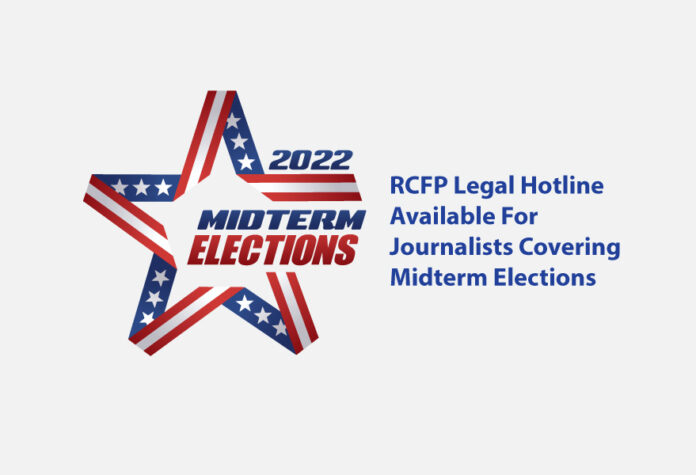
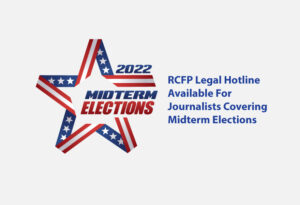 The Reporters Committee for Freedom of the Press
The Reporters Committee for Freedom of the Press 
 This Local Media Association Digital Innovation contest recognizes the best in local digital media in 16 categories such as best local website, best virtual event, best-branded content strategy, and more. It is a highly competitive contest designed to recognize both large and small media companies for their outstanding and innovative work.
This Local Media Association Digital Innovation contest recognizes the best in local digital media in 16 categories such as best local website, best virtual event, best-branded content strategy, and more. It is a highly competitive contest designed to recognize both large and small media companies for their outstanding and innovative work.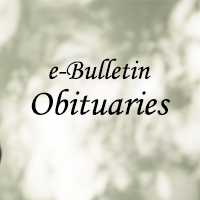
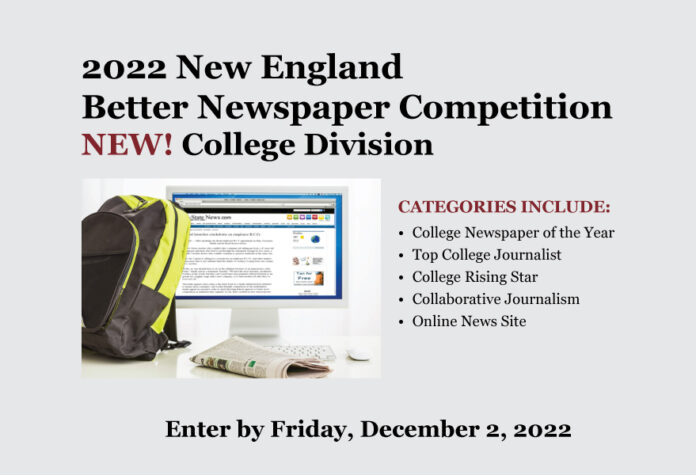
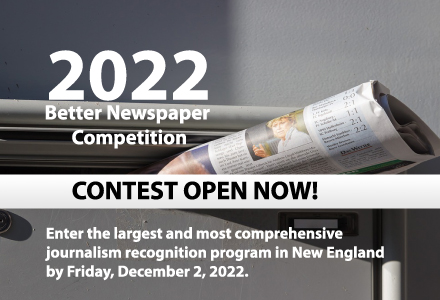

 The Poynter Institute recently announced the 15 journalists selected from more than 100 applicants for its prestigious
The Poynter Institute recently announced the 15 journalists selected from more than 100 applicants for its prestigious 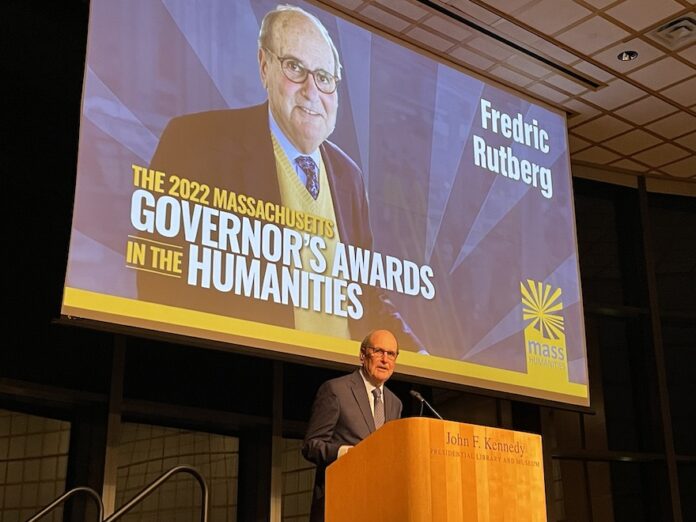
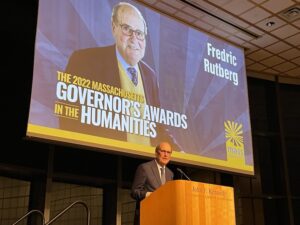 Fredric Rutberg, president and publisher of New England Newspapers, Inc., received a Governor’s Award in the Humanities at the John F. Kennedy Library and Museum in Boston on October 26.
Fredric Rutberg, president and publisher of New England Newspapers, Inc., received a Governor’s Award in the Humanities at the John F. Kennedy Library and Museum in Boston on October 26.